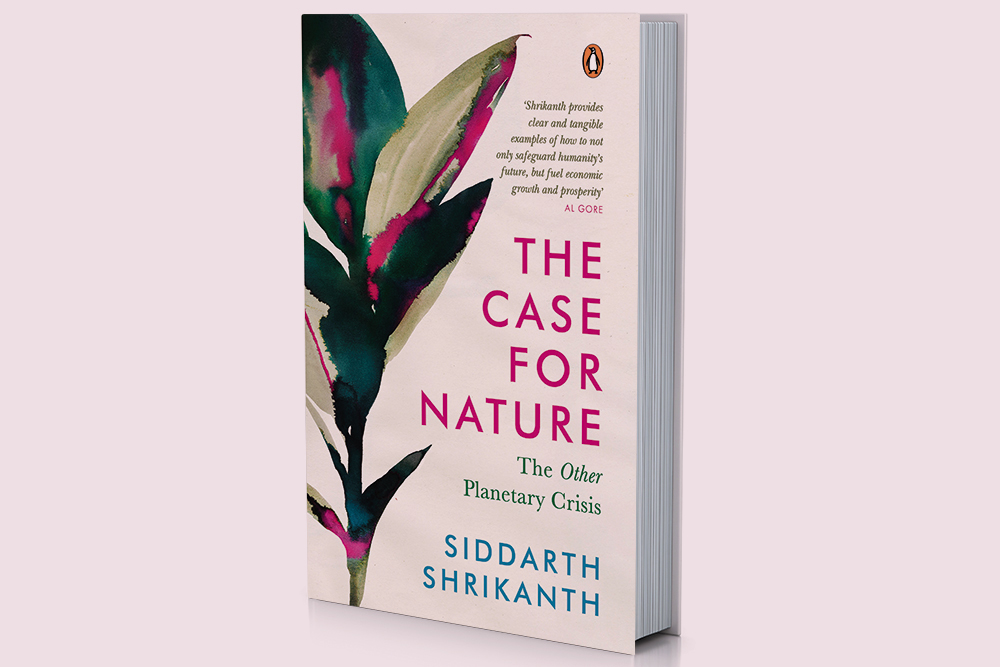Beyond valuing individual ecosystem services, some have attempted to estimate the value of all of the planet’s natural capital. As far back as 1997, Robert Constanza, Rudolf de Groot and others pegged the value of global ecosystem services at $16–54 trillion in 1994 US dollars, the equivalent of between $32-109tn in 2022 dollars. A more recent effort by the same duo put the figure at $130tn in 2010 dollars; $178tn in today’s money.
Remember that these estimates relate to flows, not stocks. To provide a point of comparison, the IMF estimated that global dollar GDP, our preferred, if deeply flawed, measure of global economic flows, was $94 trillion in 2021. If the figures seem enormous, they also seem broadly consistent with the indisputable fact that human life on earth could not exist without nature.
Shouldn’t they be even bigger, or perhaps even infinite, considering the existential nature of clean air or water to human society? Perhaps, but such valuation methods can only ever capture a fraction of the total value – some of it beyond the realm of economics – that our ecosystems provide. Using a consistent method can at least show the direction in which natural capital stocks and flows are trending, a useful lens to apply if we’re mostly concerned with managing them for sustainability over the long term.
It can be easier to digest these colossal figures if we take them down a level to individual countries. And few countries have done more to take stock of their natural capital than the UK, with teams from the Office of National Statistics (ONS) undertaking an exercise of rare sophistication to make sense of the value of the UK’s urban green spaces, farmland, forests and coasts.
The ONS found, with characteristic linguistic precision, that in 2019 ‘the stock of the aspects of UK natural capital we can currently value was estimated to be worth £1.2 trillion’. Interestingly, over half that stock value came from cultural services, the vast majority in the form of tourism and recreation. Regulating services, including carbon storage, air pollutant removal and urban cooling amounted to about £175 billion, while £357 billion came from the provisioning of water, fuel, food and the like.
In 2021, the UK Treasury released a complementary piece of work, the Dasgupta Review on the Economics of Biodiversity, that set out a new framework for how governments could think about the economics of nature. The review was led by Professor Sir Partha Dasgupta, a Cambridge economist who now rejects his discipline’s narrow-minded focus on produced capital. Running to over 600 pages, it is by far the most comprehensive effort to date to examine the relationship between biodiversity and economics.
‘Our notion of nature is often one of amenity […] A lovely walk, a mountain climb and so on. But our economic relationship with nature […] is full of missing markets and moral hazard,’ Sir Partha told me when we met in his wood-panelled study, expressing the hope that the review would give businesses and policymakers the language they need to rethink that relationship. He had found a willing audience for his ideas within the British political establishment and had spent the last several months disseminating his findings at hundreds of events, lectures and hearings. ‘What was interesting to me was how informed the parliamentarians were in the UK. They were very, very informed, and they had very intelligent questions to ask!’
The Biden administration has begun similar efforts to measure the United States’ natural capital, releasing a draft national strategy in late 2022 to ‘reflect natural assets on America’s balance sheet’. The strategy recommended that the government ‘produce a new, ongoing set of statistics to take stock of our wealth of natural assets, how those assets are being enhanced or depleted, and the impact that has on our economic strength’.
Halfway across the world, China – a huge carbon emitter and to date a climate laggard – is finally showing a degree of leadership on the natural capital front. In a quest to transform its industrial society into an ‘ecological civilization’, it is identifying crucial areas for securing nature and its vital benefits to people, with 50 per cent of the country now zoned to limit human activity. Some Chinese provinces have taken the lead on piloting a new metric pioneered by Gretchen Daily and her team, Gross Environmental Product, as an alternative to Gross Domestic Product, which is the standard flow measure of economic activity over a given time period. Relying solely on GDP for national accounts is clearly incomplete; GEP helps correct that myopia by measuring the total value of ecosystem goods and services supplied to human wellbeing in a region annually. Despite these high-profile examples, governments are yet to truly integrate natural capital into their economic planning, and GEP is nowhere close to replacing GDP measurements. Leading economists acknowledge that GDP is flawed but policymakers can’t agree on what to replace it with.
If governments are being slow to find consensus and take action, perhaps businesses could lead the way – particularly in places that face greater constraints on policy-making than China?

Bookmarked
Take a look at what’s new in the business section of Amazon’s bookshelf
Office Secrets
Harish Bhat (June 2023)
Sometimes, simple lessons turn out to be the most important at workplaces. The book offers fascinating and useful secrets that can help employees be more successful at workplace. Bhat covers a wide range of relevant topics in a way that can change forever the way one sees offices.
I’m a Climate Optimist
Aakash Ranison (June 2023)
Ranison answers questions on what one can do about climate change and the ongoing crisis. He focuses on simplifying climate change and sustainability so that everyone can understand, arguing that conscious decisions regarding consumption habits can hep one get closer to achieving climate action goals.
Impactful Data Visualization
Kavitha Ranganathan (June 2023)
The book talks about how data visuals can often be confusing and lead to incorrect understanding. The author, with her classroom-teaching style, helps spot visualisation traps and prevent misinterpretation of data.
The 99 Day Diversity Challenge: Creating an Inclusive Workplace
Saundarya Rajesh (April 2023)
The author, a social entrepreneur, demystifies the subject of diversity and inclusion for business leaders and young professionals through stories, anecdotes and thought blogs. The core idea of the book is that inclusion results in people becoming better human beings.









 Just one email a week
Just one email a week